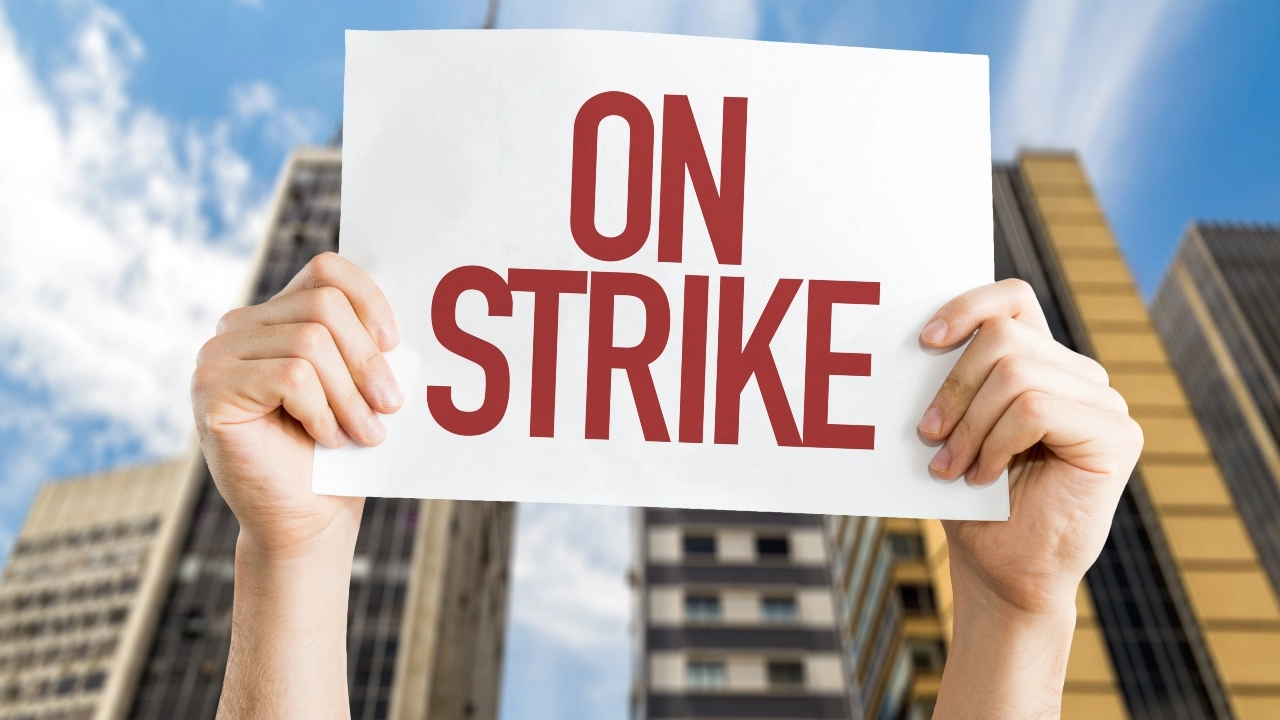What’s believed to be the longest labor stoppage in U.S. cannabis industry history ended earlier this month at a Pennsylvania medical cannabis dispensary.
But in a separate development that could be a sign of more potential marijuana sector unrest to come, striking employees at a separate company’s retail location in Columbus, Ohio, could soon claim the distinction.
After 45 days, a strike at a RISE medical cannabis dispensary location in York, Pennsylvania, that began on Labor Day came to an end with what union organizers claimed is a victory.
“We got our raise, we got our contract,” said John Stambaugh, a RISE patient care specialist and member of International Brotherhood of Teamsters Local 776.
Exact contract terms weren’t available, but workers won a grievance procedure and better paid holidays as well as raises, Stambaugh said.
A spokesperson for Green Thumb Industries, RISE’s parent company, did not respond to several requests for comment.
Observers believe that strike is the longest in the $32 billion legal industry’s brief history by a significant margin.
What’s understood to have been the previous longest-strike ended in May 2023 after 13 days.
Second marijuana industry strike could soon be the longest
But that two-week mark has since been eclipsed again, this time by workers at the Columbus location of Herbal Wellness Center who went on strike on Sept. 28.
They remained on the picket line as of Wednesday.
Workers at both locations are organized by the Teamsters, one of two major national labor unions active in the cannabis industry.
“Cannabis employers are increasingly finding out that when they treat Teamsters as partners rather than enemies, both parties benefit,” said Teamsters Food Processing Division Director Jesse Case.
“Unfortunately it takes some companies longer than others to figure that out.”
The Herbal Wellness workers also went out on strike to compel management to negotiate on a contract, worker Blaine Patton told MJBizDaily.
“They’re failing to bargain in good faith, they’re failing to give us the most basic protections and rights that unions bring to workers,” Patton said.
“We’re looking for those protections and basic rights.”
Herbal Wellness was known as Strawberry Fields until a 2023 acquisition by publicly traded Vext Science.
Vext, which operates at least five cannabis stores in Ohio, did not respond to requests for comment.
A publicly listed telephone number for CEO Eric Offenberger was disconnected.
Why are cannabis workers going on strike in 2025?
Strikes are relatively rare in organized labor and represent a weapon of last resort for workers.
Notable for their duration – 75% of all strikes across all industries are resolved within two weeks, according to a recent Bloomberg Law survey – the two strikes also come at a potentially inauspicious time for labor in the U.S.
Despite a populist message – and some qualified support for legal cannabis – President Donald Trump’s second administration is considered to be very pro-business.
And the president has hamstrung the National Labor Relations Board, the federal authority that’s in some cases responsible for adjudicating labor disputes before they head to the courts, by declining to make appointments that would allow the board to function.
In legal cannabis, operators in many legacy states have been crying poverty amid shrinking margins blamed on declining prices and competition from both the illicit market and less-regulated THC alternatives derived from hemp.
That’s not necessarily an ideal environment for workers to extract concessions – particularly not from operators who in some instances have gone to great lengths to defeat unionization efforts.
Though recent labor market reports weren’t released because of the ongoing government shutdown, Federal Reserve data shows wage growth declining for low-paid workers.
And that’s a category that many cannabis employees working in retail or production fall into.
Subscribe to the MJBiz Factbook
Exclusive industry data and analysis to help you make informed business decisions and avoid costly missteps. All the facts, none of the hype.
What you will get:
- Monthly and quarterly updates, with new data & insights
- Financial forecasts + capital investment trends
- State-by-state guide to regulations, taxes & market opportunities
- Annual survey of cannabis businesses
- Consumer insights
- And more!
What’s next for marijuana management-labor relations?
Notably, both strikes come in red states that nonetheless have strong traditions of organized labor.
In York, support came from other union members as well as workers at other non-unionized dispensaries as well as cannabis patients who agreed to stop shopping at RISE while the strike was ongoing, Stambaugh said.
“The whole solidarity thing,” he said. “I was familiar with the term, but to live it and to be on the strike line – it was a great win and it was great to feel like you’re a part of something bigger.
In the case of Herbal Wellness, which employs about 20 people at its Columbus location, workers there were unionized prior to Vext’s takeover of the company last year, Patton, one of the striking workers, told MJBizDaily.
According to Patton, erratic raises, “a lot of firings without cause” and instances of favoritism all helped convince workers to go out on strike.
But new hires are also coming on at $16 an hour, when the starting wage was $18 an hour a year ago, Patton added.
Legal sales in Ohio began in August 2024, and the state is still considered to be a growth opportunity by many cannabis companies.
Both the overall economic picture as well as the realities in the cannabis industry weighed on workers’ minds when electing to strike, Patton said.
In the end, there was only one option, he said.
“We knew that whether we stepped or not, there was going to be a severe lack of protections,” he said.
“If we wanted to stand for anything, we had to stand here.”
Chris Roberts can be reached at chris.roberts@mjbizdaily.com.
Medical Disclaimer:
The information provided in these blog posts is intended for general informational and educational purposes only. It is not a substitute for professional medical advice, diagnosis, or treatment. Always seek the advice of your physician or other qualified healthcare provider with any questions you may have regarding a medical condition. The use of any information provided in these blog posts is solely at your own risk. The authors and the website do not recommend or endorse any specific products, treatments, or procedures mentioned. Reliance on any information in these blog posts is solely at your own discretion.






